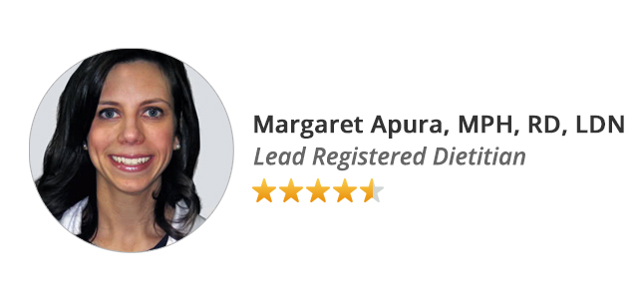Be Thankful for These Thanksgiving Digestion Tips
Updated July 2020
[This article was written with Margaret Apura, Lead Dietitian on Amwell]
Thanksgiving is a time for family, friends, and most importantly – food. This beloved holiday is one of the only days of the year where overindulging is not only common but encouraged. For most, overindulging isn’t a problem, but for others who struggle with gastro-intestinal issues, Thanksgiving may be dreaded.
If you’ve recently been diagnosed with a gastrointestinal disorder such as irritable bowel syndrome (otherwise known as IBS) or gluten-intolerance, you are probably worried about the upcoming holidays. A gastrointestinal disorder diagnosis may seem overwhelming at first, but our very own lead registered dietitian, Margaret Apura, has shared some tips and tricks so everyone can indulge responsibly this Thanksgiving. And boy oh boy, are we thankful for them.
Irritable Bowel Syndrome (IBS)
Symptoms of IBS often include gas, bloating, diarrhea, and/or severe constipation. To avoid these symptoms on Thanksgiving, stick to foods that won’t cause gas or make constipation worse. For gas and bloating, avoid cruciferous vegetables like broccoli, cauliflower, brussel sprouts, and turnips which are commonly served on Thanksgiving. Stick to vegetables that won’t cause gas and bloating like green beans, carrots, or winter squashes.
To avoid constipation, make sure to drink plenty of water throughout the day and mix in a serving or two of fruit and vegetables. Try to avoid sugary and alcoholic beverages, which can be especially dehydrating. If you have IBS with diarrhea, limit your intake of fatty foods on the Thanksgiving such as gravy, dark meat, and casserole dishes. Also, it’s important to eat slowly and eat only until you feel satisfied, not stuffed. This may help prevent many of the symptoms of IBS.
Celiac Disease or Gluten-intolerance
If you’re following a gluten-free diet for Celiac disease or other health reasons, you may be wondering what to eat on Thanksgiving. The good news is that you still have plenty of options! Plain turkey, potatoes, and vegetables (like a mixed green salad) are delicious options. Keep in mind that mixed dishes and sauces may be prepared with gluten-containing ingredients so always ask how it is prepared before eating.
Gastroesophageal reflux happens when the acid or bile in your stomach comes back up to your esophagus. This is also referred to as acid reflux or heartburn. Most people have experienced heartburn at one point or another in their life. However, more than 20 million people in the United States suffer from a more serious and long-lasting form of this: gastroesophageal reflux disease. If you’re one of those people who have heartburn daily, you may be dreading the thought of sitting down to a large, Thanksgiving meal.
Here are some tips that will help us all, especially those with gastro-issues, and will make your Thanksgiving more enjoyable:
- Don’t save up for the big meal! Make sure to have a healthy, balanced breakfast and a few healthy snacks before the Thanksgiving meal. Eating smaller, more frequent meals throughout the day can prevent reflux.
- Eat until you feel satisfied versus stuffed. Overeating will exacerbate reflux. Instead, slow down and enjoy your meal - you may find you don’t need second helpings!
- Avoid spicy & fatty foods like gravies and casserole dishes. Instead, fill up on lean turkey breast! Go light on dessert and consider having fresh fruit as an alternative.
- Avoid or drink alcoholic beverages in moderation. Any type of alcoholic beverage can make reflux worse. Instead, stick to water, juice (preferably low acid type), or other non-alcoholic, non-carbonated drink.
- Be comfortable and wear loose-fitting clothing. Tight clothing only puts more pressure on the stomach, causing food to back up.
- Take a walk after eating. If you eat and then lie down afterward (for example, to watch football, ahem…) you will most likely experience uncomfortable reflux symptoms. Instead, grab the family and go for a walk around the neighborhood. This will help with digestion and you’ll feel a lot better overall!
So, go ahead and indulge this year. If you’re still struggling with a newly diagnosed GI disorder after trying these tips, log on and connect with one of our registered dietitians today. Happy Thanksgiving!
